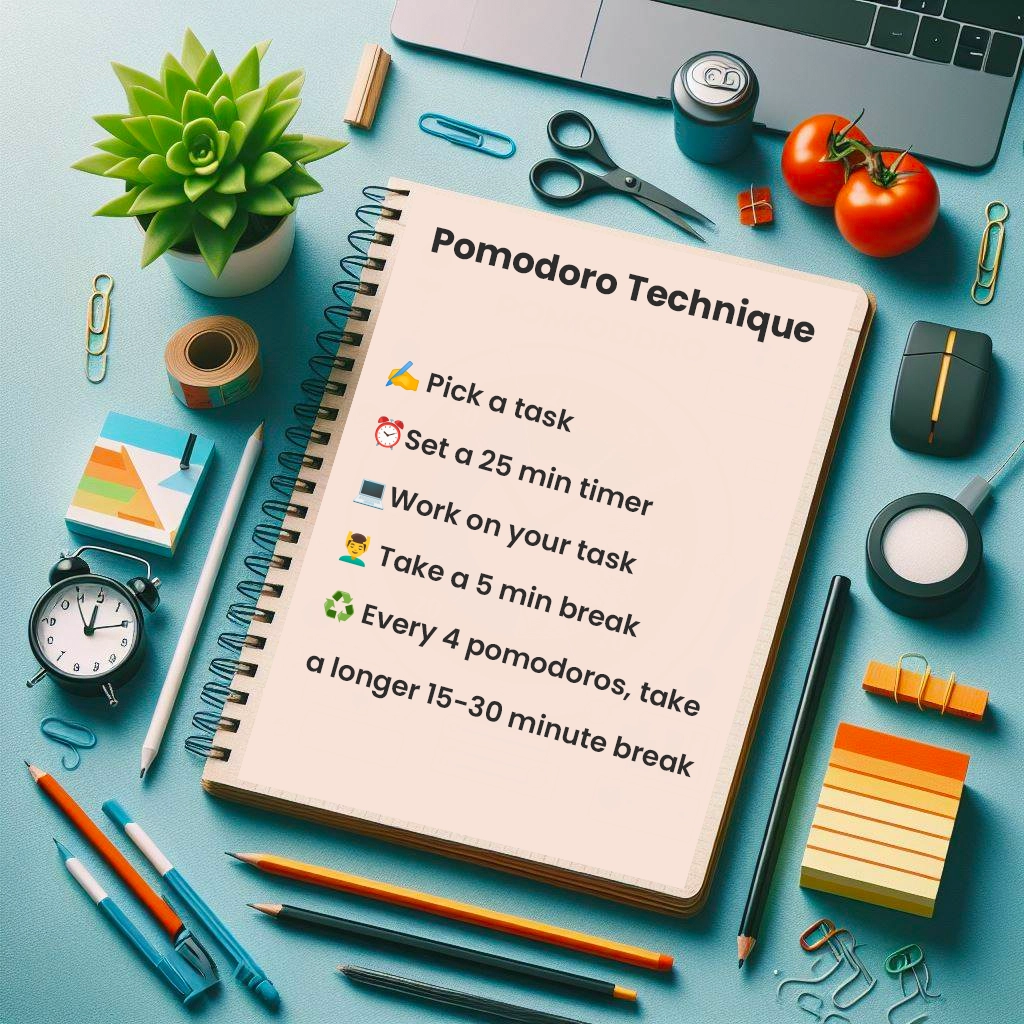
Introduction To Remote Work
The dawn of remote work sometimes surprises people.
In the 1980’s remote work was more commonly called telecommuting.
In 1983 IBM’s remote workforce rose to 2,000 as part of an experiment which eventually resulted in the company realizing they could save millions by selling its owned buildings and moving staff offsite.
And so the history of remote work began.
Through the years remote working rode the tailcoats of technology into prominence with the birth of the internet being a key catalyst in enabling large cohorts of workers to undertake their jobs outside of the traditional office.
For a decade or so after the accessibility of remote work became possible, there was no real movement on takeup until it was imposed globally by the Covid-19 pandemic.
Entire workforces were forced to work from home and business leaders and companies were forced to re-examine how we construct our working lives.
That led us up to today where the dust has settled on C19 and the way in which we move forward is completely up in the air.
The way we define remote work has changed substantially since the 1980s as it’s become ingrained in our psyche as an option that enables workers to install more flexibility and autonomy into their work-life mix.
Current remote work trends are leaning towards a mixture of in office and remote working, otherwise known as hybrid working.
Where we land on the whole matter will depend on the compromises made between employees and their employers. With differing opinions on both sides likely to ignite a flame of contention either way.
The stage is set.
The relationship we have with work and how we spend the rest of our lives integrating work into our lives looks like it will ultimately be determined in the next couple of years..
Types Of Remote Work Arrangements
As remote work has evolved through the decades, the manner in which it is undertaken has also gone through a drastic transformation. With the rise of technological advancements opening up doors of opportunity never seen before.

Fully Remote
Firstly there’s fully remote work. No need to be in the office at all with every task being done from either your home or a remote work environment like a cafe or co-working space.
Hybrid Work
Hybrid remote work offers some of the flexibility of remote work with a stipulation that you must attend the office at least on occasion, more often than not 1 to 2 times per week. Although, it could also mean 4 days in the office and 1 at home.
Work From Home
Work from home (or WFH) means that you most likely should work from your house. This is still a vague term that a lot of companies haven’t defined with robust policies yet – Some workers under this umbrella might still do their work from somewhere outside their house. You can be full time work from and and work a hybrid work from home and office working week too.
There are a number of differences between working from home and remote work that it’s useful to know
Digital Nomad
Digital nomads travel freely wherever they choose whilst working at the same time. This often involves working from different locations (often outside the country you were born in) utilizing cafes, co-working spaces, libraries etc and relying on the internet capabilities offered in those areas. A lot of digital nomads do contract and freelance work or have their own businesses/side hustles that enable them to work with such freedom.
Benefits Of Remote Work
I think the notion of working outside of the office has become ‘sticky’ and preferential to a lot of workers due to the amount of benefits remote work offers.
There’s also a number of benefits remote work offers to employers that has led to large scale reconsiderations about how work is structured.
For employees, better work-life balance is the prevailing talking point post Covid that has made workers reassess the dynamic between work and personal lives.
Less commuting time, more time to spend with the family, focussing on hobbies are core justifications for keeping hold of some remote work aspect.

A lot of remote workers also report higher productivity due to having no commute and feeling better about themselves both physically and mentally.
For some, the work from home pros are centred around a less hectic morning and return home with that transport time spent in a more valuable way with loved ones.
Those who have the ability to work outside of their home, enjoy the flexibility of environments and the new connections they make with peers and friends they’d otherwise never meet if they weren’t allowed such freedoms.
The remote work benefits for employers range from increased productivity of staff to cost savings and access to a global pool of talent, along with increased employee satisfaction and retention.
There are a multitude of benefits to remote working which are unique to each individual and business.
Businesses and employees alike should weigh up the pros and cons of all potential scenarios and circumstances and remain agile, creating working environments that are mutually beneficial to all.
Challenges Of Remote Work
On the other side of the coin, there are challenges of remote work that both employees and employers have to deal with.
On the employee side common disadvantages can be distractions – this can be both true at home and in public spaces.
Particularly for those working in public spaces, poor connectivity and security risks are prevalent and can lead to a loss of productivity or more serious ramifications if sensitive data or equipment is stolen.
Some remote workers can also feel a sense of isolation, particularly if they are working from home alone – employers have to take extra measures to ensure the wellbeing of their staff in remote settings.
On the company side the security measures that are needed are more labor intensive than if all staff were accessing infrastructure within a secure office environment. Extra software, tools and training are paramount to ensuring the safety of staff and data.
Communication and collaboration also requires training to make sure that employees are connected to their colleagues and productive with their time. Any lack of investment here can lead to a lack of productivity as well as a diminishing sense of purpose and company culture.
Companies and employees are still adapting to remote work in some of these ways. Continual learning and development are essential to maintain security, productivity and purpose amongst the workforce.
Setting Up A Remote Workspace
When I started working remotely in 2019 I plonked my laptop on a dining table and away I went – how naive I was!

Your remote work setup is always due a decent amount of consideration. I’ve found the process of getting to something close to ideal involves a fair amount of experimentation.
The first point of call should be to understand ergonomic considerations. By getting to grips with the basics of ergonomics you can ensure that you’re not only comfortable, but avoid any unwanted strains and aches further down the line.
It’s also worth noting that your out of home remote setup will differ in some ways from your work from home setup – with extra considerations for security being one of the main differentiators.
Understanding the basics of your workspace is a great way to set yourself up for success, keeping productivity high and your body comfortable.
Here are my top recommended work from home essentials and for when you’re working out and about these remote work essentials will help get your workspace setup for a successful day.
There’s not a one size fits all approach to how your workspace should be constructed. Sometimes it’s the personal touches and individualistic pieces that are the most effective at keeping us productive and motivated.
I have this coaster, my girlfriend got me for Christmas a couple of years back on my desk. It’s a small thing, but it makes me smile, keeps me motivated and at times and helps me get through the day.

Remote Work Policies
Remote work policies and guidelines are somewhat new to a lot of companies and employees. As the state of remote work has been in a constant state of flux the past few years, businesses have scrambled to adapt and create documentation – whilst some have no remote work policies at all.
If you don’t have a policy that you’ve signed, it’s always best to check with your employer about what is and isn’t allowed. This is particularly true when it comes to where you work. Sometimes remote work can only mean within your home, other times businesses are happy for their staff to undertake their work anywhere in the country as long as it’s done in an efficient manner with minimal distractions.
You should always check with your company if you intend to undertake work from abroad, outside of your core country of operation. Not doing so can lead to tax complications and the ramifications for yourself and your employer could be severe.
Another critical element of a remote work policy or guidelines that any business should have with remote staff is around security. As hackers become more sophisticated with their scams and data protection laws become more rigorous, staff should be informed, regularly trained and onboarded with best practices in mind to help mitigate any threats or potential exposure to remote cybersecurity risks.

A remote work policy can also cover things such as agreed working hours, flexibility to those hours, equipment and tech that can or should be made available to you and performance criteria and measurement.
More and more contracts are stipulating parameters for remote working – make sure to read, fully understand and ask HR questions about yours to keep you safe and within the guidelines of your company’s requirements.
Communication Tools
Understanding the value of communication tools and resources and how to use them effectively in remote environments is vital to success as a remote worker.
Video conferencing is important to understand so that you can effectively join, create and run meetings with ease. Common tools such as Zoom, Microsoft Teams and Google Meet are commonplace. Internally companies will only usually use one meaning that knowing one well is enough.

Instant messaging tools like Slack are easier to navigate and make shorter comms accessible; driving productivity in the remote world though instant conversations. They’re also a great way to share collective updates and share successes through group conversations, or company wide groups.
In between instant messaging and video conferencing sits email. Less commonly used than perhaps it used to be, email is still an effective way to communicate bigger ideas and offer deeper insights. Email is still most commonly used for external comms, but IM tools can incorporate external conversations too if required.
Project management tools like JIRA and Monday.com tend to be commonly found in companies and remote teams. These help to organize workloads, set deadlines and keep individuals and teams accountable for their work.
My mantra on communication tools is to use the right tool for the right conversation. Too often you see video calls being used when a short email would suffice, or long winded Slacks or emails that required a video call.
Learning when to use the right tool to convey what’s needed, illicit responses and collaborative conversations can be hugely beneficial to productivity and efficiency.
Employers that provide such guidelines can often help boost output amongst teams by making them more effective communicators.
Time Management, Productivity And Collaboration
One of the biggest differences between the remote working world and the office is the autonomy you have over your time and subsequently, your productivity.
In the office, the day tends to be more rigidly structured, 9-5 with an hour for lunch, for example. Although there’s an element of your own time management, it tends to be coordinated by the collective flow of the employees in the office.
In the remote world it’s on you a lot more to structure your day and manage your time in a world where there’s more flexibility.

Weekly Work Planner
Take control of your work week with this simple to use planner
Creating a work from home routine can be a great way to stay consistent and add some rhythm to your day. Taking time to research and learn common time management tips and techniques can be useful if you’re struggling to maintain focus.
Methods like the Pomodoro Technique are very popular in keeping work on track and providing a consistent rhythm of focus and relaxation to help batch manage tasks.

Often, effective remote work collaboration is a byproduct of well managed time and good use of communication tools. This is not only on the employee, but managers and companies need to strive to foster collaborative environments where staff feel engaged and driven towards common goals. Training, onboarding and virtual team building are a few ways in which a solid company culture can be built.
Establishing Work-Life Balance
It can often be an assumption that better work-life balance naturally comes from working remotely. Whilst that might be true to some extent, I’ve found that creating a healthy balance between work and my personal life has been something that I’ve had to learn over time.

As stated in the term, it’s about balance and finding equilibrium between two opposites. Rarely are work and life perfectly in harmony, sometimes we’re overworked and too stressed, sometimes we’re more relaxed about work and have more free time. Accepting that the two are polar opposites and pull to and through is all part of understanding work-life balance and coming to terms with how it works.
I find consistency with a daily routine and getting to know what works for you is the best approach to catering the working day to get the most from it.
Individualistic preferences that you might have whether you’re introverted and looking for more quiet and solitude or extroverted and craving more human interaction is one example of how only you can take control of our wellness and harmonize your working life and personal one.
We all deal with stress differently too. Knowing your triggers and adapting to manage them by understanding when to switch off and take a break can be something that you have to teach yourself to do.
There are some great remote work communities that have forums to open discussions about any thoughts or concerns you might have about stress, burnout or anything else. These can be a fantastic way to talk to and network with people in similar situations and discover new possibilities when it comes to remote work.
Employers should have some mechanisms to ensure their staff are happy, motivated and feel they have time to enjoy their lives amongst their work. If you don’t feel that way, you can always reach out to your manager or HR department, or even a colleague to discuss how you’re feeling and see what can be done.
If you’re working from home these tips might give you some inspiration about balancing your day. If you’re working out of home, these tips are catered to remote workers who spend their day out and about.
Some remote jobs with the best work-life balance can also be worth exploring if you feel the role you’re in itself is the reason that you’re not finding your work as rewarding as you’d like.
As the landscape of remote work has shifted so much in the past few years, so has the hiring process for jobs. Jobseekers have become more selective in what work they apply for as companies that can ensure and are renowned for flexibility and care for their employees on a personal level steal a march on their competitors.
Remote Work And Technology
I tend to find that I need a bit more technology know-how working remotely than I did in the office. Although IT teams can still be contacted, there’s more of a lag between the query being asked and answered, so much so that it’s easier to take it on yourself to learn how to troubleshoot issues.
The biggest one for remote workers is internet connectivity, as not a lot gets done without it!
Learning how to optimize your internet speed when working from home and becoming familiar with how to fix common connectivity problems that occur can save you many lost hours over the year.
Sometimes things are out of your control, like the internet service provider having problems. We even had a construction company that was drilling in the local area take our service down for a day.
When you’re working in public spaces, an understanding of bandwidth and back up connections such as knowing how to tether to your mobile phone can be useful skills to keep you connected.
Moreover, with security risks being so high, knowing some cybersecurity basics around how to keep your digital data and information secure can go a long way to keeping you safe.
Understanding what a VPN (virtual private network) is and how it keeps you and your data safe is a necessity for anyone working remotely, especially in public spaces.
Training And Development For Remote Work
The best remote work skills to be able to demonstrate are communication, time management and technical knowledge.
These 4 are integral components to being able to work efficiently in remote environments.
Leveraging online tools and resources can be a great way to upskill yourself, in many cases for free! Companies like FutureLearn offer remote work training courses where you can get to grips with the basics and bolster your resume.
The best way to learn though, is by doing. Applying for remote roll internships on job boards such as FlexJobs and LinkedIn can help you get a foot in the door and hit the ground running. If you’re taking on an entry level remote roll the skills you can learn in such a position should be rapid.
The biggest step is getting your foot in the door, so persistence is key – focus on adding new areas of knowledge about remote work and you’ll be in a good position to start your remote working career.
Take time to speak to individuals in a similar position through remote work communities. These are a huge knowledge base full of expertise on what it means to do remote work from all corners of the earth.
Managing Remote Teams
If you’re currently managing or might be managing remote teams in the future, there’s a few techniques and tips that you can implement to create a motivated team.

Building successful virtual teams involves strong communication such as setting clear expectations, giving and asking for feedback, fostering an environment of trust and accountability, promoting autonomy and respecting others’ personal time and commitments.
Leading remote teams can be challenging and managers have to be adaptable, particularly to new cultures and ways of working in global workforces.
I find that acknowledgement of achievements has become a bit diluted since the rise of remote work. Making sure that remote employees have a shared objective and celebrating their achievements that help take the organization forward towards them is a simple way to ensure morale and a sense of direction remains high.
Team productivity is often a big concern when it comes to managing remote teams. As well as setting clear communication guidelines, other measures such as bi-yearly or yearly face to face offsites can be a useful way to re-energize a team and build rapport in a way that’s just not feasible online.
It’s critical that new team members are assessed for their abilities and skills to operate efficiently in a remote setup along with providing comprehensive remote onboarding to ensure that they and the team have every chance of success.
Future Remote Work Trends And Predictions
The future of remote work is at a crossroads.
As the dust has settled on Covid19, the pathway forward is completely up in the air.
The data trends show that CEO’s and businesses are leaning towards a full return to the office, whilst employees are against such measures, preferring a hybrid model that includes more flexibility and better work-life balance than pre 2020.
With a whopping 76% of employees stating they’d seek new roles if their employer got rid of flexible work (Greenhouse) and 64% (KPMG CEO Outlook survey) of CEOs predicting a full return to the office by 2026, something doesn’t add up.
A compromise needs to be made. It could ultimately come down to who has the more power and influence, businesses or the employees.
The most harmonious approach should be that both sides take time to listen to each other’s perspective, taking an approach that considers changing habits and technologies into account. We should take what we’ve learned over the past 5 years to inform us on the best road forward – at the moment we’re in uncharted territory.
With technological advancements coming at a faster rate than ever, integrations of computing such as AI will also play a big part shaping the way we work like never before.
As remote workers it’s important for us to stay up to date with future trends to adapt and learn new ways of working.
Early adopters in this space have the chance to stand out and steal a march on their competition, whilst some jobs could be under threat long-term from automation.
I’m predicting a general consensus of a hybrid working model being the way we move forward with 2:3 or 3:2 days remote v in the office being where we land.
I think this will largely be agreed upon and cemented in the next 2 years.
Where AI and tech takes us is far more unknown.
Remote Work Conclusion
Remote work is in an exciting yet volatile period.
The immediate future will be critical in shaping the years beyond. To prepare, remote workers must keep their finger on the pulse as the changeability over the coming years will be dramatic.
Training and development have never been more important as remote work best practices become more solidified, the expectation is that employees become more effective working outside of the office and that employers provide clear guidance and training to support remote teams.
Both companies and staff should remain mindful of work-life balance in an ever interconnected world. Whilst technology enables us to communicate in a variety of different ways almost instantaneously, it should also be used to counteract the burnout and stress that can come with such connectivity by being used as a tool to improve wellbeing.
Recap of Key Points
Whatever the future looks like, Remoteopia is here to ride the wave of uncertainty with you – providing insights and ideas to help you navigate the changing landscape as we enter a new dawn of remote work.

James Waite
Founder of Remoteopia, James has worked in remote roles for 6 years. After a stint in recruitment, he now works as a director of website strategy in tech.




